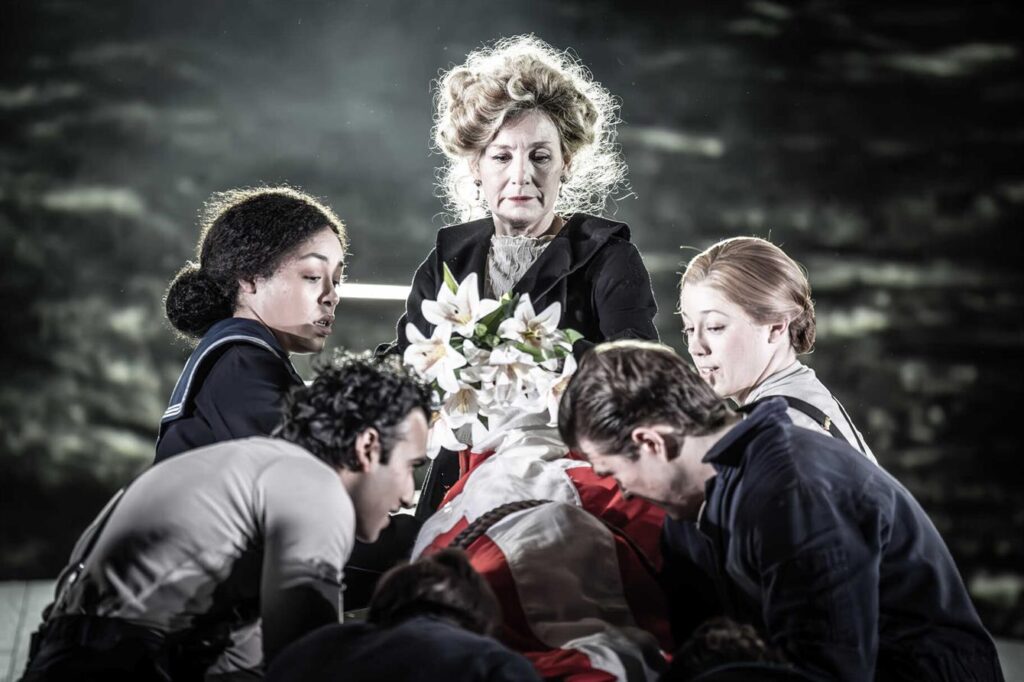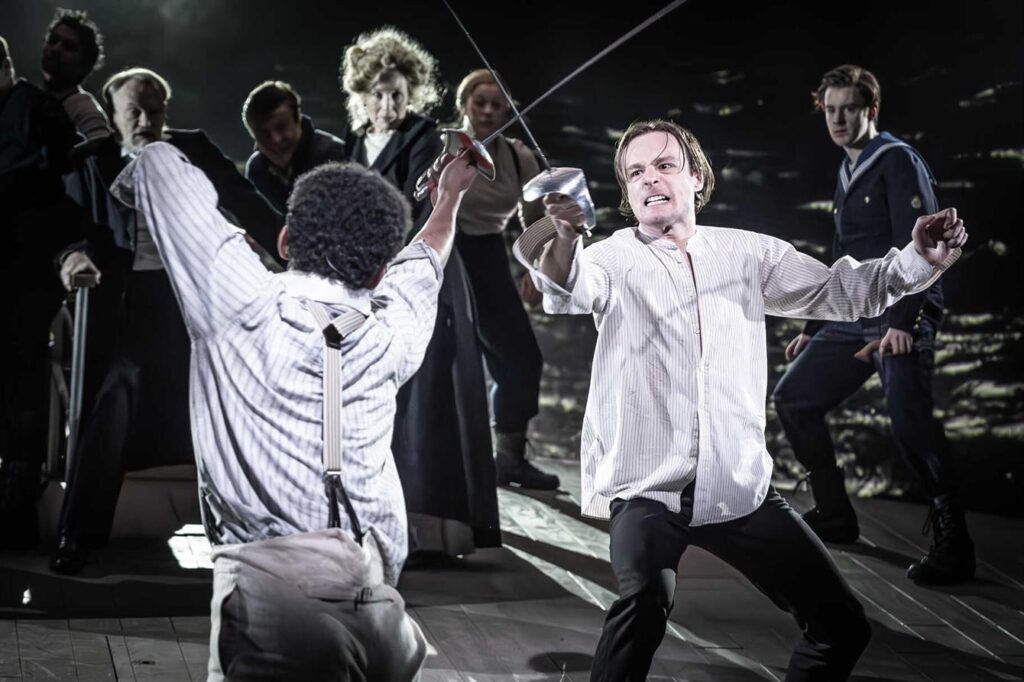
It goes without saying that Shakespeare is ripe for interpretation. Hamlet is a play frequently moulded to fit directors’ visions. My first proper experience of Shakespeare was Michael Sheen’s turn as the Young Prince in Ian Rickson’s 2011 production at the Young Vic. It saw Rickson transform Elsinore’s castle into a psychiatric hospital with Hamlet among the resident patients.
Many have followed since – the best of the bunch being Robert Icke’s surveillance state, engulfing Andrew Scott’s intensely human Hamlet. A Hamlet with a concept almost always succeeds or fails based on its coherence. Rupert Goold, returning to the Royal Shakespeare Company for the first time since 2013 has a unique concept. Elsinore is a ship at sea (set design: Es Devlin), the characters are its passengers and crew and events of the play take place over the course of a single night stretching from 9pm on 14 April 1912 until the early hours of the following morning. Astute observers will note that the Titanic sank at 2:20am on 15 April 1912.

Nautical references are already plentiful in the text. There are “seafaring men” and Hamlet (Luke Thallon) is “as mad as the sea” with a “sea of troubles” but the concept requires some significant pruning of the text – and some additions too. It isn’t possible for a gravedigger to work on a ship, so Goold reemploys the Player King (Anton Lesser, also the Ghost) with a prop to give Hamlet his skull-in-hand moment and ‘bough’ becomes ‘bow’ to explain Ophelia’s (Nia Towle) demise.
But Goold’s concept raises multiple questions. If Ophelia has gone overboard and drowned in the dead of night in these stormy seas, how did they retrieve her body for its sea burial? How has Laertes (Lewis Shepherd), who departed hours ago for France, managed to return at less than an hour’s notice to avenge his father’s death? Why is Hamlet sending letters to announce his ‘strange’ return having only been gone for about a quarter of an hour – and why does no one think it’s odd? The concept risks becoming a distraction though, thankfully, it never quite goes over the edge as it begins to reap rewards.

The cramped ship heightens the tense, claustrophobic atmosphere. Here, everyone is living on top of each other – as Polonius (Elliot Levey) begins to speak to his Ophelia, Hamlet and his entourage barge through, briefly interrupting them – and the tightened timeline continually drives the action forward creating a real sense of urgency without hurrying events – the near 3-hour running time breezes by. That said, Goold’s cuts to the play’s final scenes mean that we do end in something of a rush – the fencing session beginning in such a fit of anger that you question why Laertes is playing by the rules and acknowledging Hamlet’s palpable hits. The fight itself is a breathtaking display of swordsmanship (fight director: Kev McCurdy).
And what of Hamlet? Thallon is undoubtedly a rising star in theatre with understated performances in Patriots and Cold War – both directed by Goold at the Almeida – Camp Siegfried at the Old Vic and Leopoldstadt in the West End. Hamlet confirms his talents, even if they are not in dispute. At times he is dazzlingly good. He is a magnetic presence – you catch yourself holding your breath, hanging on his every word. At other times he dispatches the language with wilful irreverence as he wrestles with his inner conflict. He flits between the serious and slapstick; the latter all the more heartwrenching as we see a man trying to find the old sense of himself as he floats adrift from the world.

There is fine support from Levey’s meddling Polonius, Nancy Carroll’s increasingly panicked Gertrude and Jared Harris’s brutish Claudius. Lesser is haunting – literally – as the ghost of Hamlet’s father and the Player King whose striking resemblance to the dead king spooks Hamlet. These starry performances, with Thallon at their centre, keep the ship afloat even in those moments when the concept threatens to sink it.
Rating: ★★★★☆ (Very good)
Hamlet is at the Royal Shakespeare Theatre, Stratford-upon-Avon, until 29 March 2025














